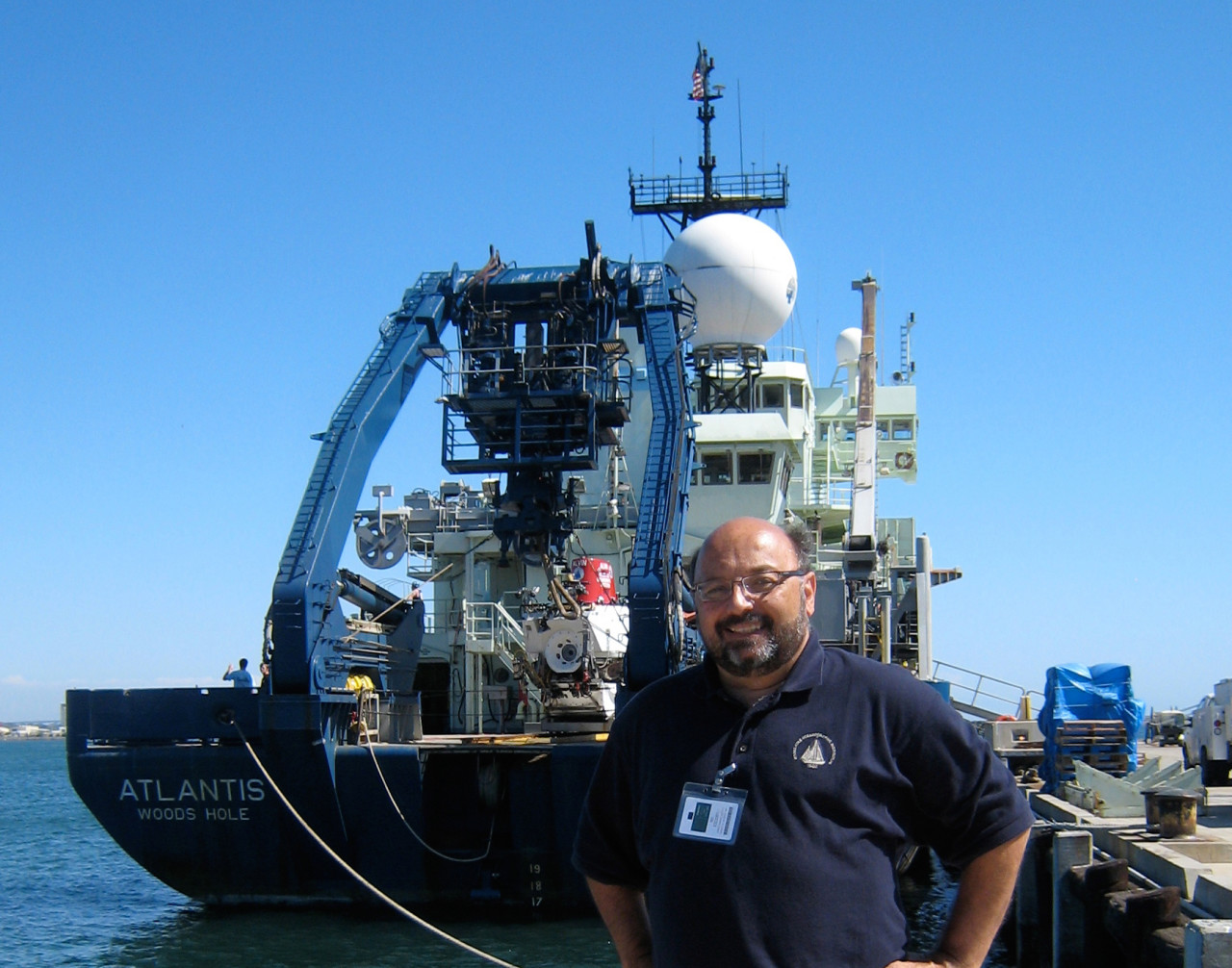Advertisement
Bottom Of The Sea Is 'A World Of Surprises'
Resume
The world's oceans cover nearly two-thirds of the Earth's surface, yet little is understood about the ocean floor. Less than 10 percent of the global sea floors have been explored or mapped. That's because it so difficult to do it — the ocean is vast and deep, and sophisticated technology is required to go there.
This is what makes the search for the missing Malaysia Airlines plane in the Indian Ocean so difficult.
Oceanographer Dave Gallo of the Woods Hole Oceanographic Institution tells Here & Now's Jeremy Hobson that what we do know is that the bottom of the ocean is a fascinating place, with dramatic peaks and valleys deeper than the Grand Canyon, and underwater lakes, rivers and waterfalls.
Interview Highlights
Gallo on why we don’t know more about what the ocean looks like
“Well it’s vast. The oceans are thousands of miles across, 10,000 in some places. It’s deep: average depth — two miles, greatest depth — seven miles. You need all sorts of sophisticated technology to go deep in the ocean. You can’t use GPS, you can’t use radio waves. You have to bring your own electricity and power and lights, and the pressure can be thousands of pounds per square inch, so it’s not an easy place to get to let alone explore.”
Gallo on what the ocean floor looks like
“If you took all the water off the planet, the most dramatic topographic feature on earth would be this mountain range called the mid ocean ridge — it’s a volcanic mountain range, 50,000 miles long and it winds around the world like the seams of a baseball and it’s got thousands of peaks on it that higher than the peals in the Alps, or the Himalayas, or the Rocky Mountains-most rugged thing on the planet and its crisscrossed by thousands of valleys many times wider and deeper than the Grand Canyon.”
Gallo on why the U.S. is sliding backwards on ocean exploration
“I don’t know. I’ve never understood this given the promise of the oceans. There’s one things to explore the oceans because it’s exciting but we now know today that the air we breath, the food we eat, the water we drink-all of those are tied to the oceans.”
“It’s clear that there’s an advantage to be had by understanding what’s going on in the oceans, and the first thing we need to do is to explore it. Yet we don’t give it a lot of attention at all and I just don’t understand what we need to do to make that point.”
Guest
- Dave Gallo, director of special projects at Woods Hole Oceanographic Institution.
This segment aired on October 23, 2014.

